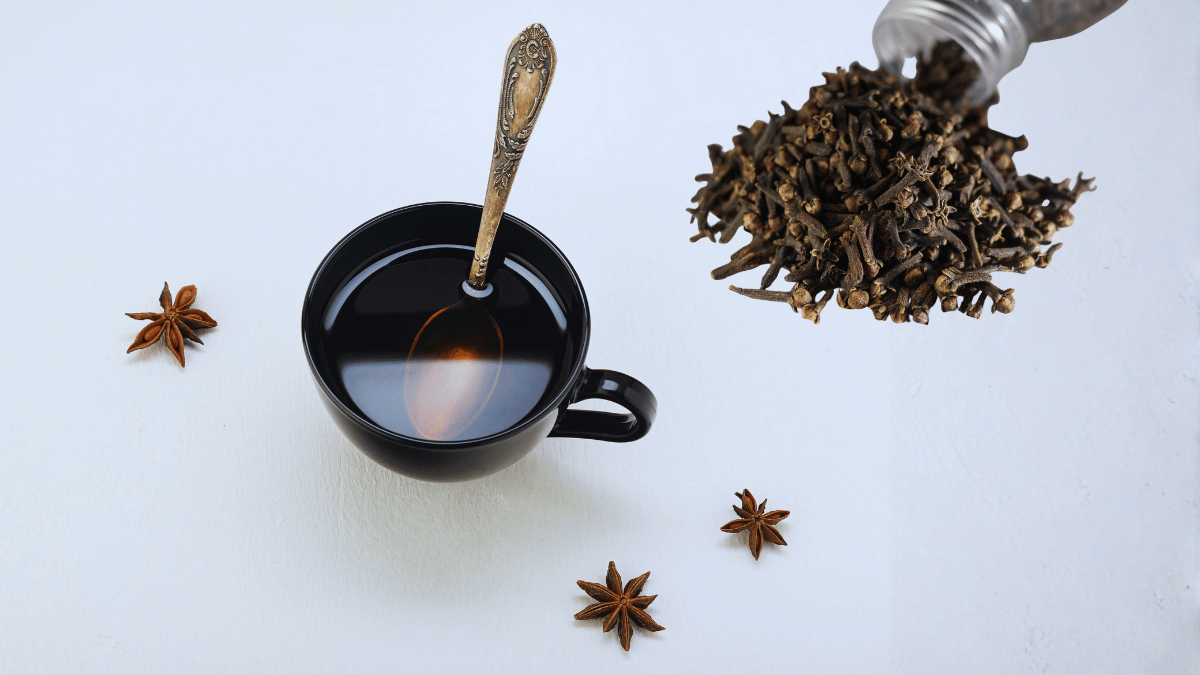I first tried clove tea at a friend’s place. Her husband came back from his Asia tour, and had got back some really aromatic spices, including cloves. It’s my friend’s grandmother’s recipe which she used to make every sunday. Ten minutes after having my first sip, I felt a pleasant warmth spread through my belly.
Clove tea has been around for centuries-first as a fragrant ritual in Southeast Asia, then a pantry remedy across American kitchens. Grounded in its natural oils, clove carries eugenol, a compound known for its soothing and anti-inflammatory properties. That’s science’s way of saying it helps calm the gut after a meal that went a little overboard.
It’s a quiet fixer for bloating, gas, and that heavy belly feeling we all get sometimes after pizza Fridays or family potlucks. More than that, clove’s slightly warm, peppery aroma tends to trigger the parasympathetic system-your body’s “rest and digest” mode. When that happens, digestion moves along more smoothly, and your nervous system gets the memo to relax.
I’ll be honest-when I started swapping my late-night dessert for a small cup of clove tea, my sleep deepened. Maybe it’s part chemistry, part cozy ritual. Either way, it felt like a small win for my overworked digestion.
Why This Tiny Seed Packs a Punch
Let’s start with the chemistry. Cloves are tiny, but their concentration of antioxidants rivals blueberries. Those antioxidants help reduce oxidative stress-the kind caused by processed foods, stress, or lack of sleep. They support better insulin balance too, which is handy after carb-heavy meals.
Then there’s eugenol again-this compound is what gives clove its slight numbing quality. If you’ve ever used clove oil for a toothache, you’ve felt it. In tea form, it’s milder but still helps calm inflammation in the stomach lining. Pair it with a dash of cinnamon or a slice of ginger, and you’ve got an herbal trifecta for gut comfort.
Even better, this blend encourages your stomach to produce digestive enzymes that break down fats more efficiently. So if you’re winding down after burgers or mac and cheese, think of clove tea as the kind friend that helps clean up after your meal.
The Moments to Skip It
Still, more isn’t always better. Clove tea’s strength can become an issue if you have certain medical conditions. Because eugenol can thin the blood slightly, people taking anticoagulant medications-like warfarin-should avoid heavy clove use. The same goes for anyone preparing for surgery or dealing with bleeding disorders.
Pregnant or nursing women should talk with their doctors before sipping, too, since high doses of concentrated clove oil aren’t well studied for safety during those stages. And while most folks can enjoy a mild brew, anyone with ulcers or sensitive stomach linings might find it too strong. In that case, try diluting it more or alternating with gentler teas like chamomile.
Think of it like this: clove is powerful because nature made it potent. Treat it like a supplement, not a bedtime indulgence.
How to Make It Part of Real Life
The beauty of clove tea is how simple it is. Drop three or four cloves into hot water, let it steep for five to eight minutes, strain, and sip slowly. You can add honey or lemon for balance, or just enjoy it plain. Some evenings, I toss in a cinnamon stick or a slice of orange rind-it turns your kitchen into a quiet winter café.
Drink it about 30 minutes after a meal; that’s when your body starts digesting and could use a little backup. Morning people might enjoy it in place of coffee on rest days, but most find it deeply satisfying as a nighttime ritual.
If you track wellness trends online, you’ve probably seen clove tea making small waves under hashtags like #GutReset or #NaturalDetox. But I’d say think less “cleanse” and more “care.” This isn’t about forcing your body-it’s about giving it a nudge in the right direction.
The Steady Wisdom in Small Things
In wellness, the wins are rarely flashy. Clove tea reminds us that small, mindful habits can go a long way-especially when life’s rushed and we lean too hard on processed comfort. It’s not a miracle drink, and it shouldn’t replace treatment if something feels off. But as part of a balanced pattern-good meals, gentle movement, steady rest-it belongs right there beside your everyday self-care rituals.
So next time that familiar fullness lingers, maybe skip the antacid and warm a little clove tea instead. Slow and steady really does win the race when it comes to digestion-and sometimes, healing begins with one quiet, fragrant cup.

